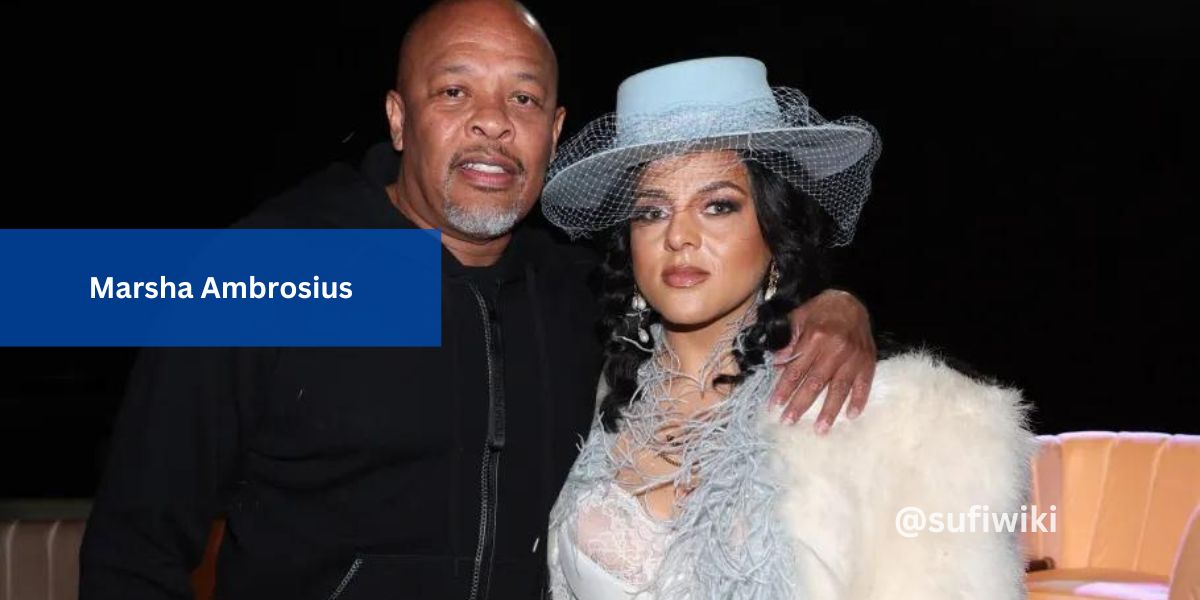Marsha Ambrosius, 46, is not your typical R&B diva. Known for her soulful voice and thought-provoking lyrics, Ambrosius has made significant strides in the music industry, both as a solo artist and as part of the neo-soul duo, Floetry. Her debut solo album “Late Nights & Early Mornings” reached No. 2 on Billboard’s 200 Albums chart and No. 1 on the R&B Albums chart, featuring songs that explore themes of passionate romance, heart-wrenching breakups, and even gay suicide. With a net worth estimated at $8 million, Ambrosius continues to push the boundaries of R&B, using her platform to address taboo subjects and provoke important conversations.
Expanding R&B’s Horizons
Marsha Ambrosius began her career as one half of Floetry, a duo that left a lasting mark on the neo-soul genre. Beyond performing, she has penned hits for notable artists like Alicia Keys and Michael Jackson. However, as a solo artist, Ambrosius has taken significant risks, delving into uncharted territories in the R&B world. Her single “Far Away” is a poignant example. Written after a close friend attempted suicide due to the struggles of being gay, the song addresses an issue seldom explored in mainstream R&B.
“It would be easy for me to write a song about a relationship I was in with my boyfriend at the time,” Ambrosius explained. “But for me, I wanted to tell the story that wouldn’t be told otherwise.”
The Impactful Music Video
The music video for “Far Away” is as impactful as the song itself, depicting scenes of gay bashing and homophobia. In the video, Ambrosius and a male friend, initially portrayed as her boyfriend, are shown sharing tender moments in a park. However, the narrative takes a turn when the man is later seen kissing another man. As the couple returns to the park, they face disdain and aggression, culminating in a brutal beating by a group of hooded men. The video concludes with the man’s lifeless body, a bottle of pills, a note, and a suicide hotline number, highlighting the devastating consequences of intolerance.
The video sparked a range of reactions online, from praise to outrage. Some viewers accused Ambrosius of pushing a “homo-agenda,” while others condemned the portrayal of homosexuality as a sin. Ambrosius responded to the backlash, emphasizing that her music reflects real experiences and real people.
“I remember seeing that quote, and I believe I responded to that and many other comments like that,” Ambrosius said. “I’m making real music for real people and this was a real situation that not only my friend had gone through but others also.”
Cultural Shifts and Acceptance
Dr. Mark Anthony Neal, a professor of African and African-American Studies at Duke University, noted that attitudes towards homosexuality are shifting, particularly among younger generations of African-Americans. “Folks are getting much more comfortable coming out and being honest about their sexuality,” Neal observed. “This is a generation of young black folk who just do not process gender and sexual politics the same way their parents and grandparents do.”
Despite the evolving attitudes, Pew Research polls indicate that acceptance of gays has been slower among African-Americans compared to the broader American populace. However, Ambrosius’s career remains strong, with the video for “Far Away” receiving airtime on major networks like BET and VH1.
Opening Dialogues
Marsha Ambrosius acknowledges that her video has opened up vital conversations about homosexuality and suicide. “Whether it was negative or positive … people have opened that line of communication now,” she said. “Because the end result is suicide — the death of loved ones we care about. Gay, straight, black, white … whatever it may be.”
Ambrosius feels a deep responsibility as the singer and songwriter of a song that has touched so many. “I have to deal with me being the singer/songwriter of a song that was personal to me which is now so personal to so many people and I can hold that responsibility.”
Continuing the Legacy
Marsha Ambrosius continues to use her music to challenge societal norms and address difficult topics. Her courage to tackle issues like homophobia in the African-American community sets her apart as an artist willing to push boundaries. As she progresses in her career, Ambrosius remains a powerful voice in R&B, advocating for inclusivity and understanding through her music.
Her work not only entertains but also educates and inspires, making her an influential figure in both the music industry and broader social conversations. Ambrosius’s dedication to her craft and her willingness to confront controversial issues ensure that she will continue to leave a lasting impact on the world of R&B and beyond.

